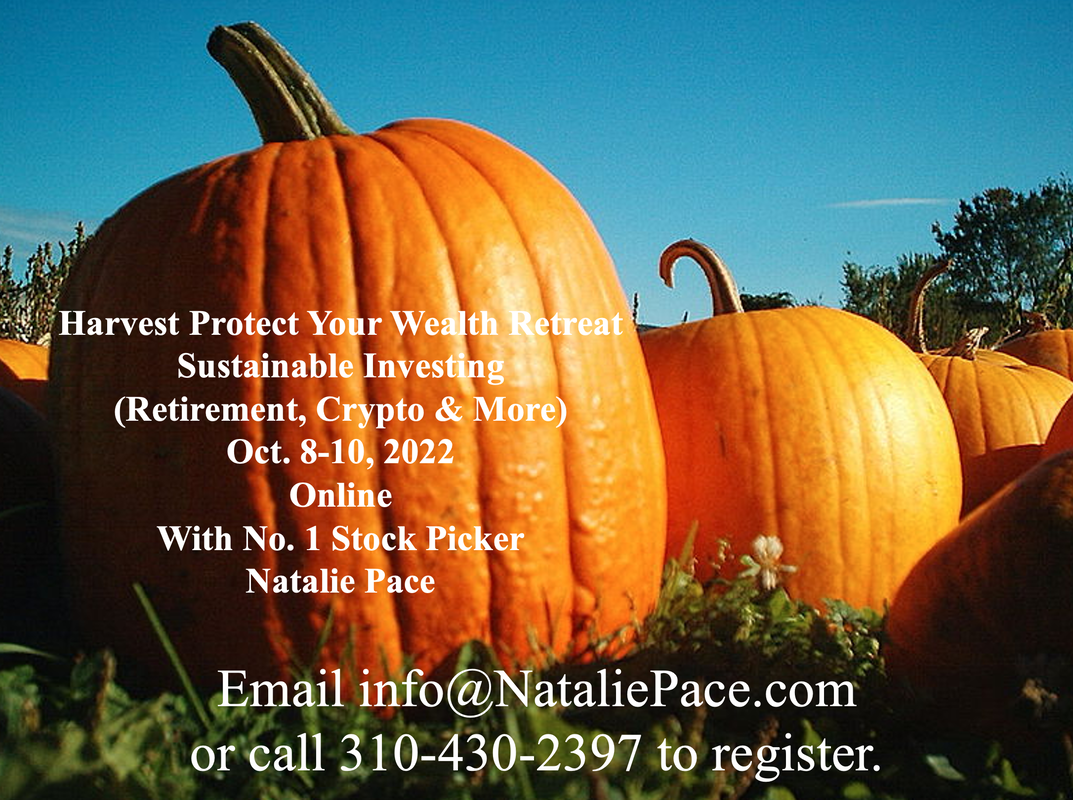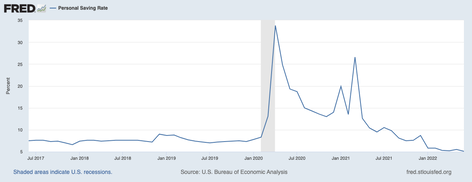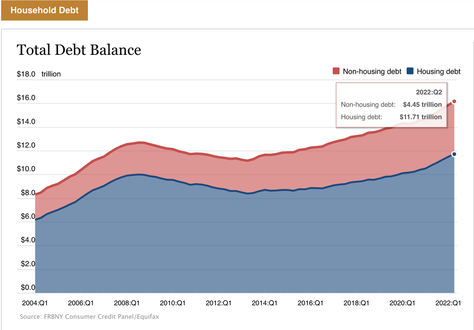|
75% of New Homeowners Have Buyer’s Remorse. Real Estate Prices Drop as Sales Plunge. Should you buy, sell, hold or wait? Learn where interest rates and home prices are headed over the next few years. According to Zillow, 75% of new home owners are regretting their purchase. Some are facing more maintenance, upkeep and remodel costs than they anticipated. Others wish they’d taken more time to weigh their options. Home sales dropped 20% year over year in July, and prices were down 3% from June’s high of $416,000, to a median existing home sales price of $403,800. Those who were already regretting their purchase are experiencing heightened stress now. If you’re thinking about purchasing a home, be sure to read the information below before you throw your hat in the ring. (It’s a realtor/broker/salesman’s job to sell you a home and get the commission – not to weigh all of the budget, market, investment and lifestyle consequences of your purchase.) If you’re wondering whether or not you have overextended yourself and should be exiting your recent purchase, consider the points below, read the case studies outlined in the Real Estate section of the 5th edition of The ABCs of Money, and join me on Thursday, August 25, 2022 for my free videoconference and podcast. I host a short Q&A at the end of each webinar. One of the most painful lessons any of us can endure is to buy real estate at the top of the market or to purchase more home than we can afford. That can create hardship for a very long time, while also tanking our credit rating. The sooner we face the facts, the better off we’ll be. Buyers are Backing Out D.R. Horton, an American homebuilder, reported that 24% of buyers were backing out in the 2nd quarter, using inspections and other escrow loopholes to back out of the deal. Some weren’t able to move forward due to higher interest rates. They no longer qualified for a loan. Many new homeowners are stretching above what their budget can really bear. The unaffordability of housing has drained the savings of many Americans. The pandemic support is already gone, while consumer debt (including mortgage debt) rang up to an all-time high of $16.15 trillion in the 2nd quarter of 2022. This is an indicator that Americans are burning through savings and taking on debt to make ends meet. Interest Rates Are Rising This won’t affect fixed rate mortgages. One bit of good news is that the vast majority of mortgages and refinances over the last few years were fixed rates. That will help to prevent a real estate meltdown such as occurred in 2008. There were just too many ARMs (Adjustable Rate Mortgages) then. When the monthly payment jumped, there were too many people who couldn’t pay. There was also a great deal of speculation in the Great Recession. This time around lending standards were higher, with the majority of new homeowners having prime credit scores, according to the Federal Reserve. Most people were buying a home they were intending to live in. Just 14% of purchasers were investors or 2nd home buyers in July of 2022, according to the National Association of Realtors. The real concern is that there is a great deal of people who are spending most of their income on housing, particularly between the ages of 25 and 40. According to the National Association of Realtors, millennials and Gen Z are spending 23% of their income on a mortgage and 50% or more on rent. This may seem like an obvious reason to buy a home, and is the fuel that fed the fire of home price jumps during the pandemic. However, it’s important to remember that buying high in real estate does not go well if prices weaken, which is already happening. The Federal Reserve Board is counting on homeowners to “weather the storm” if a recession brings home prices down. However, distressed homeowners who are already spending too much on housing will be cash-strapped and trapped, with a credit score that plunges and wipes out the option to borrow until better times return. Living through an underwater mortgage is a difficult financial burden that can elevate stress, health and relationship problems. The 4 D’s of Real Estate If you are itching to buy or sell a home right now, then it’s a good idea to learn more about the 4 D’s of real estate: divorce, death, depression and disaster. When any one of the 4 D’s occur, homeowners might be forced to sell. There are far fewer buyers today, and we’re entering a seasonally slower season for real estate. So, if a homeowner is desperate to sell, the price has to drop. That works to the advantage of the patient buyer. Shopping in the shadow inventory means you might find deals that are 35% or more off the retail price. This is something we’ll discuss in great detail at my upcoming Real Estate Master Class, to be held online on Oct. 15, 2022. (Click to learn more.) What About Interest Rates? Rising interest rates make buying a home more difficult and expensive. The Fed Funds rate is predicted to rise to 3.4% this year, 3.8% in 2023 and then retreat back to 3.4% in 2024. The longer run expectation is 2.5%. If the economy hits a recession and prices weaken, the Federal Reserve Board will cut rates. This isn’t expected to happen until 2024. However, economic and inflation indicators will determine the policy. Right now interest rates on a 30-year fixed mortgage are 5.13%, up 88% from a low of 2.73% in January of 2021. Home Builders, Mortgage Companies & REITs We are underweighting real estate in our sample pie charts. Commercial real estate is suffering from the Work From Home trend. There are high vacancies in many office buildings and malls. It's important to remember that the higher the dividend, the higher the risk of losing your principal. Storage, data centers and industrial real estate are still holding strong. However the strength is already built into the share prices. Email [email protected] if you would like a Home Builders and Mortgage stock report card. Both industries are seeing sales/revenue slump as buyers dry up. Incidentally, the distress in real estate in the Great Recession started with bankruptcies in the mortgage banking sector as early as April of 2007. The stock market kept rising through October, before plunging throughout 2008 and landed at a bottom on September 9, 2009. On that date, the Dow Jones Industrial Average hit 6,547 (-80% from today’s range of 33,705). The recent median low price for homes was $166,100 in 2009 (down -60% from the June 2022 high and -25% from the 2006 high of $221,900). Incidentally, almost 20 million homes were lost to foreclosure between 2006 and 2019 (19.6 million). No one is predicting that kind of implosion. However, it is common for stocks and real estate prices to plunge far and fast in 21st Century recessions. It’s important to protect our wealth before the bad headlines – which is why we are also overweighting 20% additional safe in our Sample Pie Charts. You can learn our time-proven 21st Century wealth strategies at the Oct. 8-10, 2022 Online Financial Empowerment Retreat. Register now and receive a free 4-part webinar on how to protect your wealth from a downturn and your budget from inflation. Bottom Line If you’re itching to buy, it’s a great idea to take your foot off the gas and start evaluating real estate with a different lens than the sales speak offered by your realtor broker-salesman. There’s an entire section on real estate in The ABCs of Money 5th edition. The book includes a checklist of considerations that every prospective homeowner should consider before buying a house. If you’re thinking about selling, there are also many considerations to evaluate before you sell. Real estate can be a great way to hold wealth, particularly during a time when paper assets and fiat currency are losing value, and especially if you can find a way to gain some income out of it. There are multiple real-life case studies outlined in the Real Estate section of The ABCs of Money 5th edition that will help you to expand and broaden your vision so that you won’t be one of the 75% of new homeowners who have buyer’s remorse. If you're interested in learning 21st Century time-proven investing strategies for protecting your wealth and managing the bear market from a No. 1 stock picker, join us for our Oct. 8-10, 2022 Financial Freedom Retreat. Email [email protected] or call 310-430-2397 to learn more and to register. Click on the banner ad below to discover the 18+ strategies you'll learn and master. Get the best price when you register with friends and family. Register now to access your free 4-part Protect Your Wealth Now webinar that will get you started immediately.  Join us for our Financial Freedom Retreat. Oct. 8-10, 2022. Email [email protected] to learn more. Register with friends and family to receive the best price and a free 4-part webinar (which you can access to protect your wealth now). Click for testimonials & details.  Natalie Wynne Pace is an Advocate for Sustainability, FinancialLiteracy & Women's Empowerment. Natalie is the bestselling author of The Power of 8 Billion: It's Up to Us and is the co-creator of the Earth Gratitude Project. She has been ranked as a No. 1 stock picker, above over 835 A-list pundits, by an independent tracking agency (TipsTraders). Her book The ABCs of Money remained at or near the #1 Investing Basics e-book on Amazon for over 3 years (in its vertical), with over 120,000 downloads and a mean 5-star ranking. The 5th edition of The ABCs of Money was released on September 17, 2021. Natalie Pace's easy as a pie chart nest egg strategies earned gains in the last two recessions and have outperformed the bull markets in between. That is why her Investor Educational Retreats, books and private coaching are enthusiastically recommended by Nobel Prize winning economist Gary S. Becker, TD AMERITRADE chairman Joe Moglia, Kay Koplovitz and many Main Street investors who have transformed their lives using her Thrive Budget and investing strategies. Click to view a video testimonial from Nilo Bolden. Check out Natalie Pace's Apple Podcast.
Watch videoconferences and webinars on Youtube. Other Blogs of Interest Clean Energy Gets a Green Light from Congress. Fix Money Issues. Improve Your Relationships. 24% of House Sales Cancelled in the 2nd Quarter. 3 Things to Do Before July 28th. Recession Risks Rise + a Fairly Safe High-Yield Bond DAQO Doubles. Solar Shines. Which Company is Next in Line? Tesla Sales Disappoint. Asian EV Competition Heats Up. 10 Wealth Strategies of the Rich Copper Prices Plunge Colombia and Indonesia: Should You Invest? 10 Misleading Broker/Salesman Pitches. Why are Banks and Dividend Stocks Losing Money? Beyond Meat: Rare or Burnt? Netflix Streaming Wars End in a Bloodbath. Elon Musk Sells $23 Billon in Tesla Stock and Receives $23 Billion in Options. Are You Gambling With Your Future? ESG Investing: Missing the E. Moderna & Biotech Trade at 2-Year Lows. Bitcoin Crashes. Crypto, Bold and Stocks All Crash. The Economy Contracted -1.4% in 1Q 2022. The Dow Dropped 2000 Points. Is Plant-Based Protein Dying? Should You Sell in April? The U.S. House Decriminalizes Cannabis Again. Chinese Electric Vehicle Market Share Hits 20%. The Risk of Recession in 6 Charts. High Gas Prices How Will Russian Boycotts Effect U.S. Multinational Companies? Oil and Gas Trends During Wartime Russia Invades Ukraine. How Have Stocks Responded in Past Wars? Zombie Companies. Rescue, Rehab or Liquidate? Spotify: Music to my Ears. Cannabis Crashes. 2022 Crystal Ball in Stocks, Real Estate, Crypto, Cannabis, Gold, Silver & More. Interview with the Chief Investment Strategist of Charles Schwab & Co., Inc. Stocks Enter a Correction Investor IQ Test Investor IQ Test Answers Real Estate Risks. What Happened to Ark, Cloudflare, Bitcoin and the Meme Stocks? Omicron is Not the Only Problem From FAANNG to ZANA MAD MAAX Ted Lasso vs. Squid Game. Who Will Win the Streaming Wars? Starbucks. McDonald's. The Real Cost of Disposable Fast Food. The Plant-Based Protein Fire-Sale What's Safe in a Debt World? Inflation, Gasoline Prices & Recessions China: GDP Soars. Share Prices Sink. The Competition Heats Up for Tesla & Nio. How Green in Your Love for the Planet? S&P500 Hits a New High. GDP Should be 7% in 2021! Will Work-From-Home and EVs Destroy the Oil Industry? Insurance and Hedge Funds are at Risk and Over-Leveraged. Office Buildings are Still Ghost Towns. Money Market Funds, FDIC, SIPC: Are Any of Them Safe? My 24-Year-Old is Itching to Buy a Condo. Should I Help Him? The 12-Step Guide to Successful Investing. Gardeners Creating Sanctuary & Solutions in Food Deserts. 2021 Company of the Year Almost 5 Million Americans are Behind on Rent & Mortgage. Real Estate Hits All-Time High. Rebalancing Your Nest Egg IQ Test. Answers to the Rebalancing Your Nest Egg IQ Test. Videoconferencing in a Post-Pandemic World (featuring Zoom & Teladoc). Sanctuary Sandwich Home. Multigenerational Housing. Interview with Lawrence Yun, the chief economist of the National Association of Realtors. 10 Budget Leaks That Cost $10,000 or More Each Year. The Stimulus Check. Party Like It's 1999. Would You Pay $50 for a Cafe Latte? Is Your Tesla Stock Overpriced? 10 Questions for College Success. Is FDIC-Insured Cash at Risk of a Bank Bail-in Plan? 8 Money Myths, Money Pits, Scams and Conspiracy Theories. Why Are My Bonds Losing Money? The Bank Bail-in Plan on Your Dime. Important Disclaimers Please note: Natalie Pace does not act or operate like a broker. She reports on financial news, and is one of the most trusted sources of financial literacy, education and forensic analysis in the world. Natalie Pace educates and informs individual investors to give investors a competitive edge in their personal decision-making. Any publicly traded companies or funds mentioned by Natalie Pace are not intended to be buy or sell recommendations. ALWAYS do your research and consult an experienced, reputable financial professional before buying or selling any security, and consider your long-term goals and strategies. Investors should NOT be all in on any asset class or individual stocks. Your retirement plan should reflect a diversified strategy, which has been designed with the assistance of a financial professional who is familiar with your goals, risk tolerance, tax needs and more. The "trading" portion of your portfolio should be a very small part of your investment strategy, and the amount of money you invest into individual companies should never be greater than your experience, wisdom, knowledge and patience. Information has been obtained from sources believed to be reliable. However, NataliePace.com does not warrant its completeness or accuracy. Opinions constitute our judgment as of the date of this publication and are subject to change without notice. This material is not intended as an offer or solicitation for the purchase or sale of any financial instrument. Securities, financial instruments or strategies mentioned herein may not be suitable for all investors. Comments are closed.
|
AuthorNatalie Pace is the co-creator of the Earth Gratitude Project and the author of The Power of 8 Billion: It's Up to Us, The ABCs of Money, The ABCs of Money for College, The Gratitude Game and Put Your Money Where Your Heart Is. She is a repeat guest & speaker on national news shows and stages. She has been ranked the No. 1 stock picker, above over 830 A-list pundits, by an independent tracking agency, and has been saving homes and nest eggs since 1999. Archives
July 2024
Categories |









 RSS Feed
RSS Feed